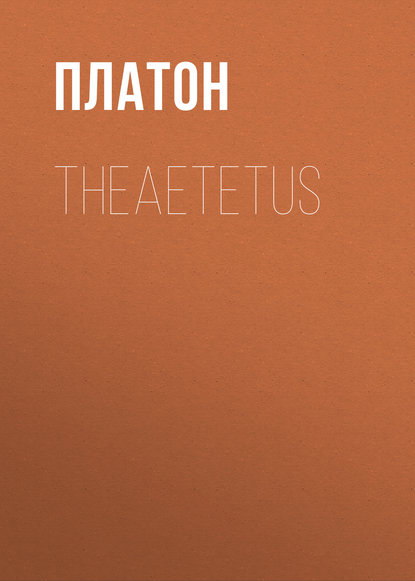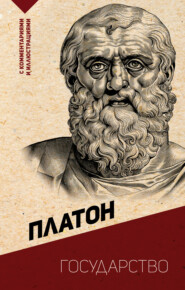По всем вопросам обращайтесь на: info@litportal.ru
(©) 2003-2024.
✖
Theaetetus
Настройки чтения
Размер шрифта
Высота строк
Поля
THEAETETUS: Impossible, Socrates; the supposition is monstrous.
SOCRATES: Am I talking nonsense, then? Think: is not seeing perceiving, and is not sight perception?
THEAETETUS: True.
SOCRATES: And if our recent definition holds, every man knows that which he has seen?
THEAETETUS: Yes.
SOCRATES: And you would admit that there is such a thing as memory?
THEAETETUS: Yes.
SOCRATES: And is memory of something or of nothing?
THEAETETUS: Of something, surely.
SOCRATES: Of things learned and perceived, that is?
THEAETETUS: Certainly.
SOCRATES: Often a man remembers that which he has seen?
THEAETETUS: True.
SOCRATES: And if he closed his eyes, would he forget?
THEAETETUS: Who, Socrates, would dare to say so?
SOCRATES: But we must say so, if the previous argument is to be maintained.
THEAETETUS: What do you mean? I am not quite sure that I understand you, though I have a strong suspicion that you are right.
SOCRATES: As thus: he who sees knows, as we say, that which he sees; for perception and sight and knowledge are admitted to be the same.
THEAETETUS: Certainly.
SOCRATES: But he who saw, and has knowledge of that which he saw, remembers, when he closes his eyes, that which he no longer sees.
THEAETETUS: True.
SOCRATES: And seeing is knowing, and therefore not-seeing is not-knowing?
THEAETETUS: Very true.
SOCRATES: Then the inference is, that a man may have attained the knowledge of something, which he may remember and yet not know, because he does not see; and this has been affirmed by us to be a monstrous supposition.
THEAETETUS: Most true.
SOCRATES: Thus, then, the assertion that knowledge and perception are one, involves a manifest impossibility?
THEAETETUS: Yes.
SOCRATES: Then they must be distinguished?
THEAETETUS: I suppose that they must.
SOCRATES: Once more we shall have to begin, and ask 'What is knowledge?' and yet, Theaetetus, what are we going to do?
THEAETETUS: About what?
SOCRATES: Like a good-for-nothing cock, without having won the victory, we walk away from the argument and crow.
THEAETETUS: How do you mean?
SOCRATES: After the manner of disputers (Lys.; Phaedo; Republic), we were satisfied with mere verbal consistency, and were well pleased if in this way we could gain an advantage. Although professing not to be mere Eristics, but philosophers, I suspect that we have unconsciously fallen into the error of that ingenious class of persons.
THEAETETUS: I do not as yet understand you.
SOCRATES: Then I will try to explain myself: just now we asked the question, whether a man who had learned and remembered could fail to know, and we showed that a person who had seen might remember when he had his eyes shut and could not see, and then he would at the same time remember and not know. But this was an impossibility. And so the Protagorean fable came to nought, and yours also, who maintained that knowledge is the same as perception.
THEAETETUS: True.
SOCRATES: And yet, my friend, I rather suspect that the result would have been different if Protagoras, who was the father of the first of the two brats, had been alive; he would have had a great deal to say on their behalf. But he is dead, and we insult over his orphan child; and even the guardians whom he left, and of whom our friend Theodorus is one, are unwilling to give any help, and therefore I suppose that I must take up his cause myself, and see justice done?
THEODORUS: Not I, Socrates, but rather Callias, the son of Hipponicus, is guardian of his orphans. I was too soon diverted from the abstractions of dialectic to geometry. Nevertheless, I shall be grateful to you if you assist him.
SOCRATES: Very good, Theodorus; you shall see how I will come to the rescue. If a person does not attend to the meaning of terms as they are commonly used in argument, he may be involved even in greater paradoxes than these. Shall I explain this matter to you or to Theaetetus?
THEODORUS: To both of us, and let the younger answer; he will incur less disgrace if he is discomfited.
SOCRATES: Then now let me ask the awful question, which is this: – Can a man know and also not know that which he knows?
THEODORUS: How shall we answer, Theaetetus?
THEAETETUS: He cannot, I should say.
SOCRATES: He can, if you maintain that seeing is knowing. When you are imprisoned in a well, as the saying is, and the self-assured adversary closes one of your eyes with his hand, and asks whether you can see his cloak with the eye which he has closed, how will you answer the inevitable man?
THEAETETUS: I should answer, 'Not with that eye but with the other.'
SOCRATES: Then you see and do not see the same thing at the same time.
THEAETETUS: Yes, in a certain sense.
SOCRATES: None of that, he will reply; I do not ask or bid you answer in what sense you know, but only whether you know that which you do not know. You have been proved to see that which you do not see; and you have already admitted that seeing is knowing, and that not-seeing is not-knowing: I leave you to draw the inference.
THEAETETUS: Yes; the inference is the contradictory of my assertion.

















